Gender Attacks: Social media as a platform for attacks for abuse and harassment on women and girls
According to Digital 2020 Cameroon, there were 3.70 million social media users in Cameroon by January 2020. The number of social media users in Cameroon increased by 360,000 (+11%) between April 2019 and January 2020. This increase comes with social media misuse, especially on Facebook, where online bullying is rampant. In Cameroon, social media is used as a tool for freedom of expression and a weapon of war, with women and girls being affected the most. It has presented new forms of violence against women, including sharing violent content of women, unsolicited pornographic content, and personal information disclosure.
With the advent of social media in Cameroon, individuals and groups have used social media to abuse and harass women and girls online. From revenge porn videos to the sharing of violent videos that show the brutal murder of women by alleged separatist fighters. Since armed conflict in the North West and South-West regions escalated in 2017, many women have been brutally raped and killed. The videos and images spread on social media for amusement, with these ladies described as “blacklegs”.
“Revenge porn” slowly became a revenge tool used by ex-boyfriends of girls and women. To humiliate them on social media after Natalie Koah, in February 2016, wrote a book about her ex-boyfriend, Samuel Eto’o titled “Revenge porn”. This book gained the attention of individuals who transferred the concept to social media. In June 2016, a group of Cameroonian ladies in the US, a revenge porn tape to sabotage the image of a lady who allegedly dated one of their boyfriends. The story was published on various sites, including Laarry’s News Room. https://m.facebook.com/groups/270072686531294/permalink/525940207611206/
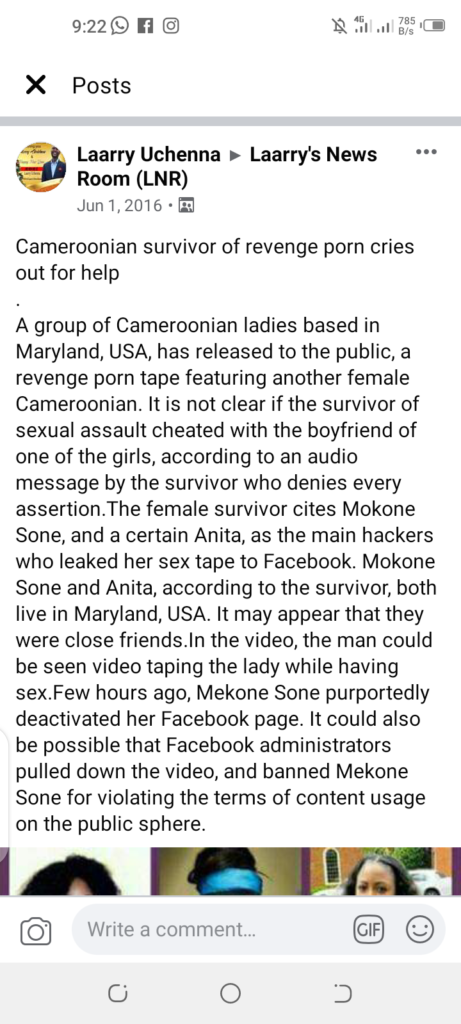
In May 2017, a porn video was posted on Facebook by a boy called Epie Ntoko after molesting the young lady because she supposedly ate his 2500frs. There was an outrage on social media for weeks calling for authorities to arrest the Epie Ntoko. This perpetrator never apologised to the girl and somewhat shifted the blame to his friend. https://m.facebook.com/story.php?story_fbid=330216197413721&id=238549683247040
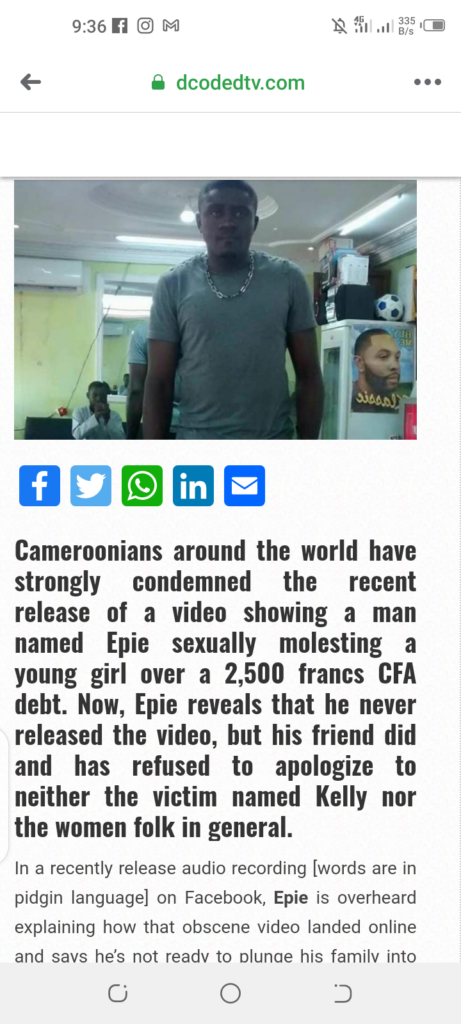
Some of these perpetrators create fake accounts to woo ladies, get their nude images and later blackmail them. On April 24, 2020, a Facebook user, Nakinti Besumbu Nofuru, raised an alert on a nude video leakage. In the post, she talks of a scammer trying to blackmail a young girl after getting her nude pictures. The young girl asked her for help which Nakinti then turned to other users to help the victims handle the situation. https://m.facebook.com/story.php?story_fbid=3067578149930234&id=100000342377137
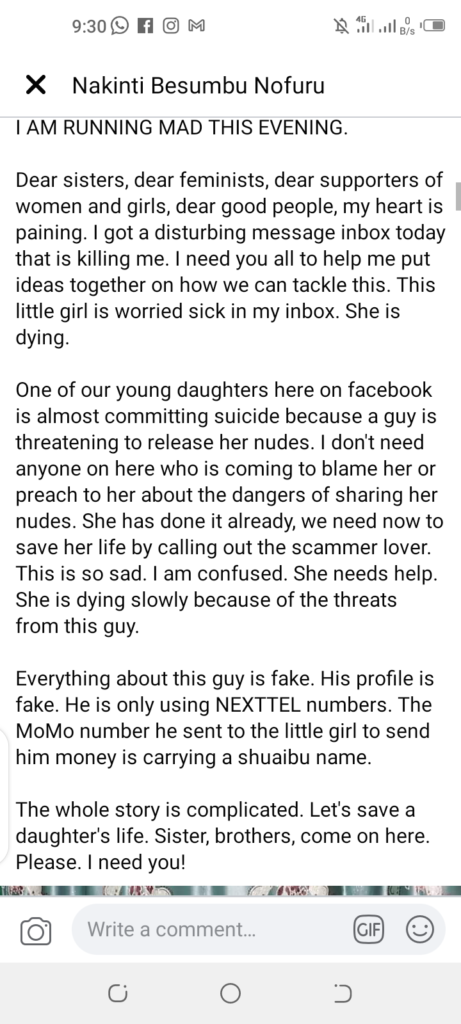
Away from revenge porn, separatist fighters use social media to circulate the violent murder of women they describe as “blackleg”, which means betrayal. According to separatist fighters, some of these ladies were killed for dating military men, as they were assumed to be spies.
On August 3, 2020, a lady called Treasure Keno was killed in Bamenda, and a video of her laying in her pool of blood was later circulated on social media. Another video of her dancing for some men was also disseminated online to show the world the type of life she lived. Many ended up judging her lifestyle rather than condemning her killers. https://m.facebook.com/story.php?story_fbid=749573212540710&id=100024641152039
According to separatist fighters, Treasure was killed because she was a spy. In a live video by Capo Daniel on August 5 2020, one of the movement’s leaders confirmed the reason for the young girl’s death. https://m.facebook.com/story.php?story_fbid=169451731310060&id=100047357022841
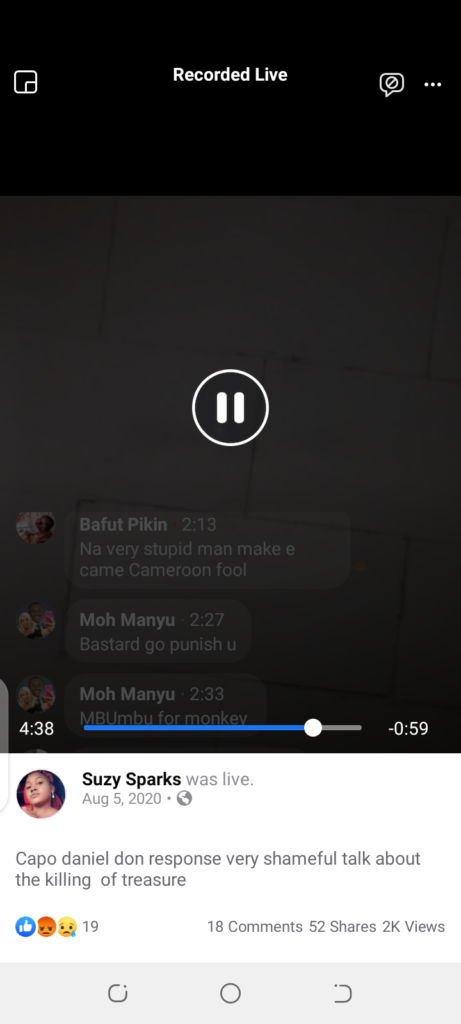
On August 11 2020, another lady, Comfort Tumassang, was cruelly murdered in Muyuka and the video circulated on social media with her killers branding her a spy because she dated a man in the military. In a live video by My Media Prime on August 23 2020, a separatist fighter says they killed her because she was a blackleg. https://m.facebook.com/story.php?story_fbid=611972449707918&id=191521961752971
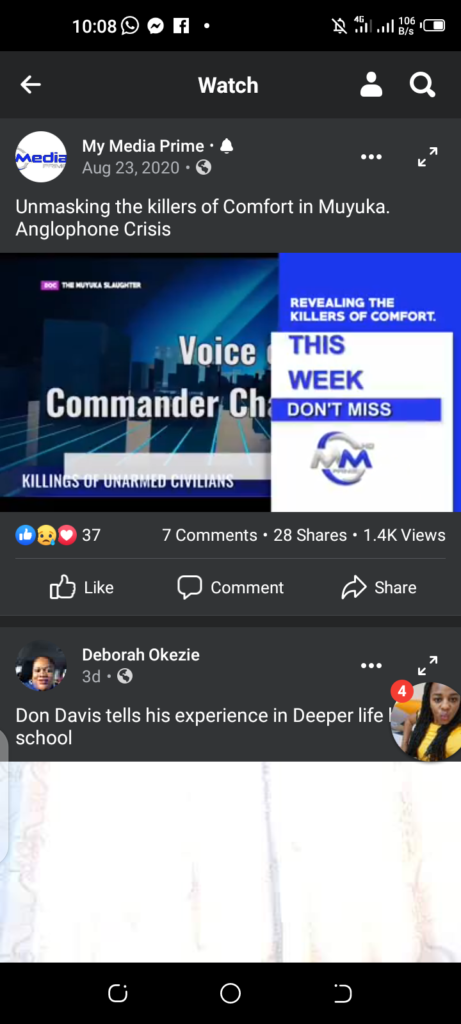
Separatist fighters have also used social media to threaten the North West and South-West regions’ educational world. On November 4, 2020, a group of gunmen attacked the Kulu Memorial College in Limbe. They undressed the students, took videos and posted on social media. The aim was to humiliate them and scare students from going to school in the two regions. https://m.facebook.com/story.php?story_fbid=197231748591902&id=101008421547569
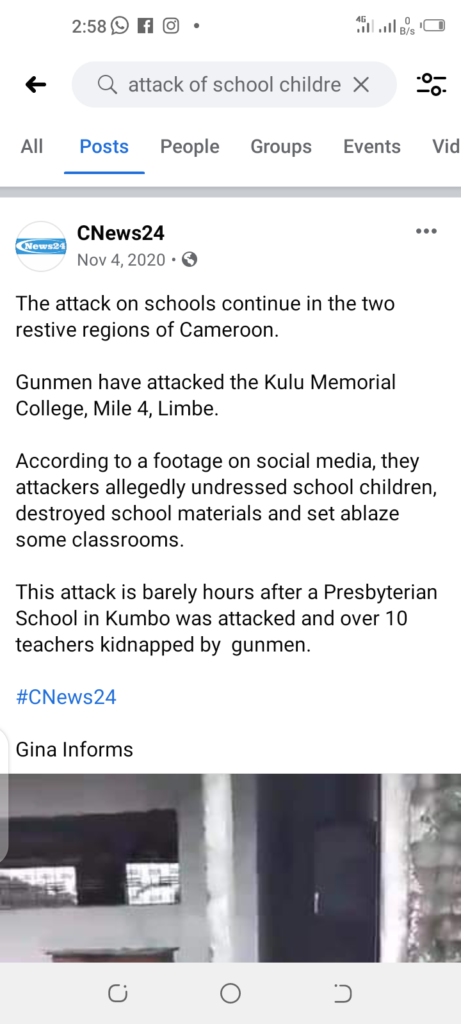
Mimi Mefo, a renowned female journalist in Cameroon, is also a victim of social media attacks, following her steadfastness in reporting the Anglophone crisis. Njume Frankline has attacked her on several occasions. He gives her names such as “prostitute.” On December 22, 2020, he made an abusive post about her, saying, “ok, I get it….so Mimi studied but activism and mass fornication”. On another post on December 18, 2020, he wrote another vulgar post about Mimi.
Social media is an excellent tool for success when used correctly; unfortunately, some scrupulous individuals sometimes use it to torment women and girls. This form of violence has scared most women and girls from social media as it has become unsafe. This form of violence affects the victims negatively, both online and offline. There is always a psychological link between online violence and their daily lives offline. Social media platforms need to make their spaces safe for women and girls. The perpetrators escape the responsibility of their actions online, leaving their victims to deal with the aftermath alone. These attacks often cast a shadow over the accomplishments of the ladies for a long time.
by Maikem Manzie

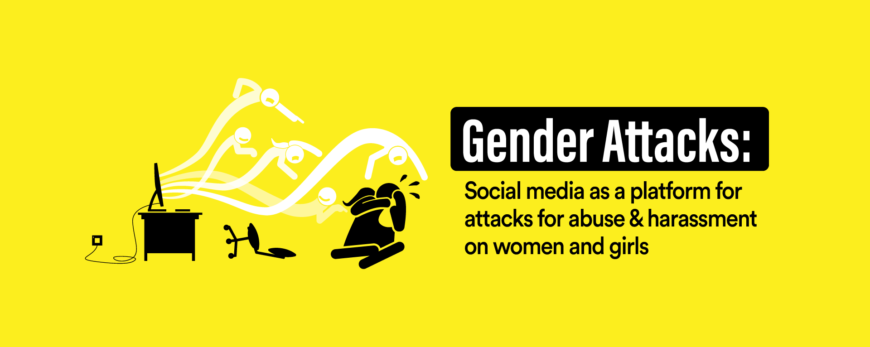
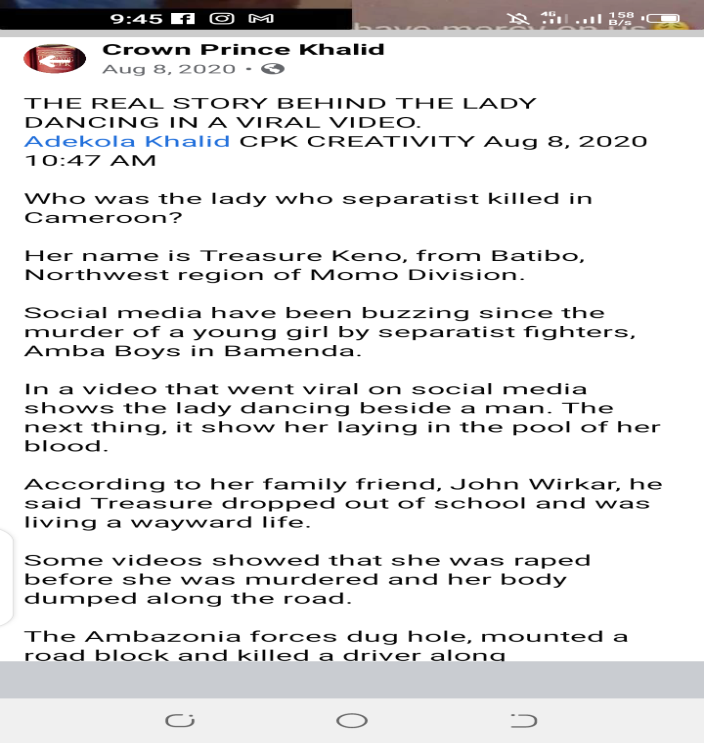
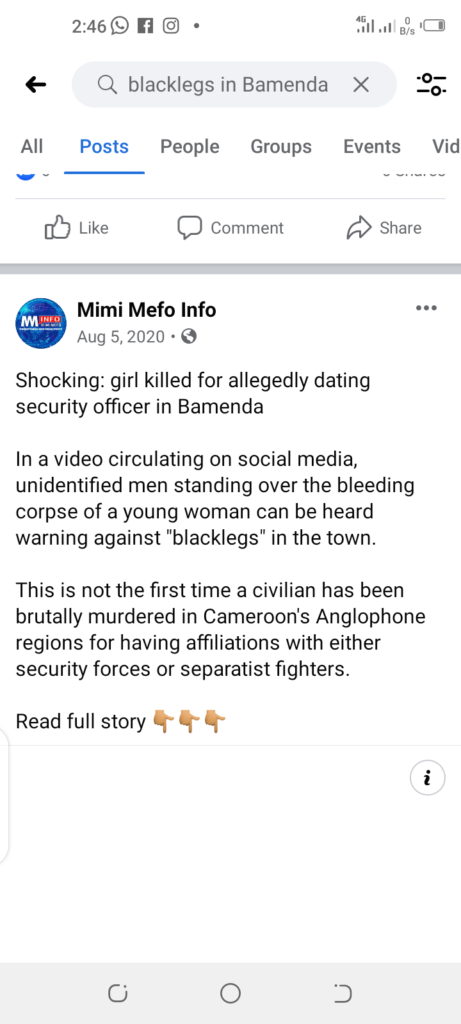
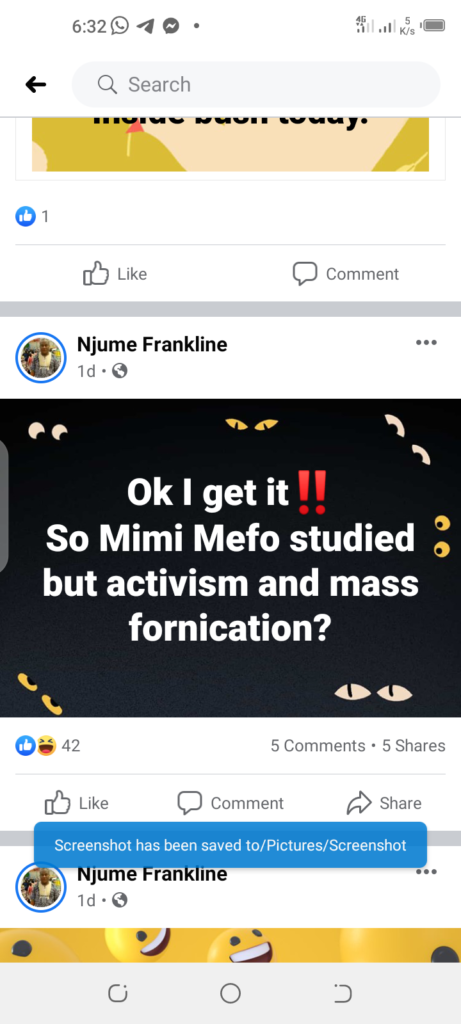
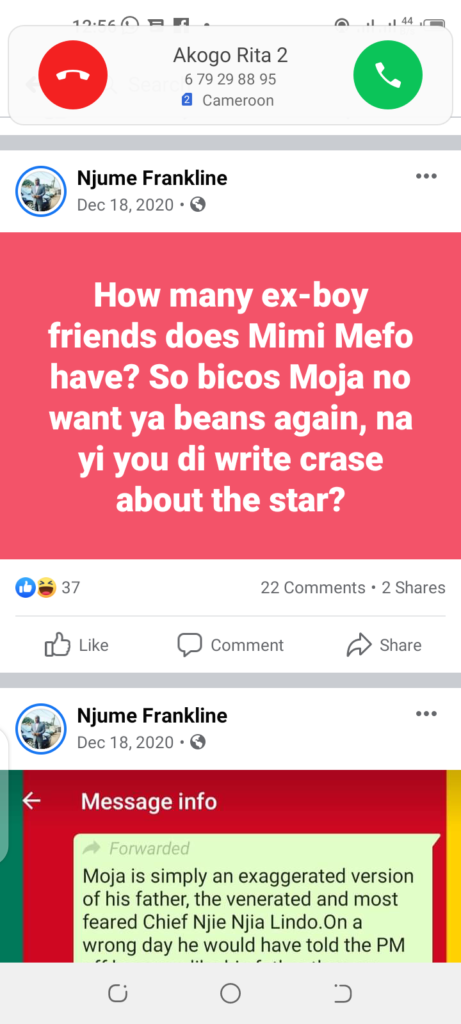
Recent Comment
Can you be more specific about the content of your article? After reading it, I still have some doubts. Hope you can help me.